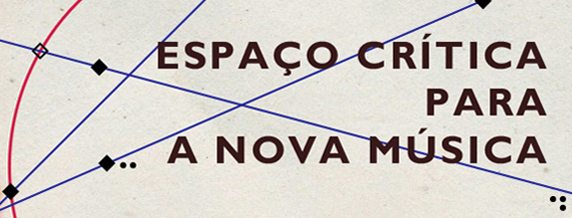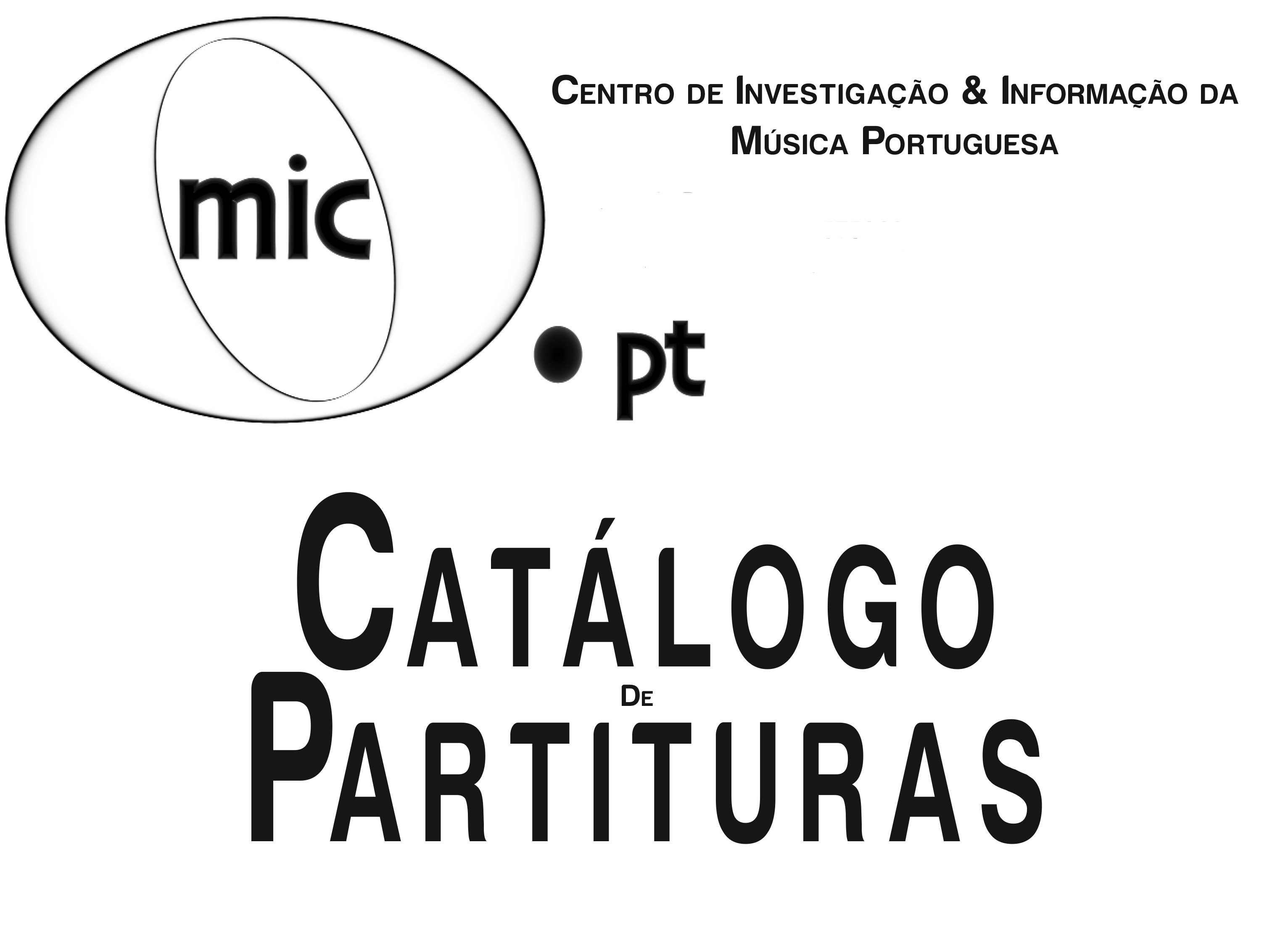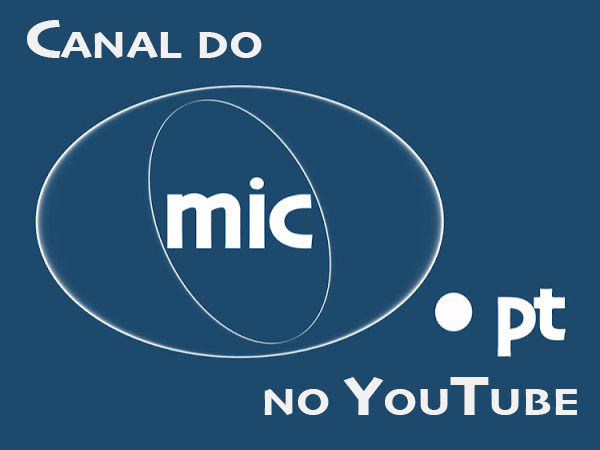“Presently I find composing much easier.”[1]
Ricardo Ribeiro was born in Aveiro on January 30th 1971. He attended saxophone and singing classes at the Calouste Gulbenkian Music Conservatory in the same city. His interest towards music has been developing since young age. When he was seven, as an initiative of his paternal grandfather, he began to have private music and piano lessons with Rosa da Silva Matos, a relative, who encouraged him to go to the conservatory. Ricardo Ribeiro’s first contact with contemporary composition was through Jorge Peixinho, whose creative dimension marked him profoundly.
In 1996 he graduated from the composition course at the Lisbon Superior School of Music, under the direction of Christopher Bochmann and António Pinho Vargas. During the two following years he took part in a course in Italy, Alto Perfezionamento Musicale (Composizione), coordinated by Franco Donatoni, obtaining a Masters Degree in composition. Between 1998 and 2002 he continued his compositional work and research in Paris with Emmanuel Nunes, who has become, since then, a determining influence in his creative path. He also participated in different courses conducted by such composers as Magnus Lindberg, Philippe Manoury, Tristan Murail, Salvatore Sciarrino, Jonathan Harvey and Brian Ferneyhough, among others. Making reference to the composer’s words: “After completing the academic course I had great pleasure to attend seminars / courses conducted by unquestionable masters of European composition: the sensuality and peculiar humour of Franco Donatoni, the creative universe (…) of Emmanuel Nunes and the timbrical and harmonic mastery of Tristan Murail, which turned out to be valuable references to the effort in finding my own voice with minimal consistency.”
[2]
Ricardo Ribeiro was born in Aveiro on January 30th 1971. He attended saxophone and singing classes at the Calouste Gulbenkian Music Conservatory in the same city. His interest towards music has been developing since young age. When he was seven, as an initiative of his paternal grandfather, he began to have private music and piano lessons with Rosa da Silva Matos, a relative, who encouraged him to go to the conservatory. Ricardo Ribeiro’s first contact with contemporary composition was through Jorge Peixinho, whose creative dimension marked him profoundly.
In 1996 he graduated from the composition course at the Lisbon Superior School of Music, under the direction of Christopher Bochmann and António Pinho Vargas. During the two following years he took part in a course in Italy, Alto Perfezionamento Musicale (Composizione), coordinated by Franco Donatoni, obtaining a Masters Degree in composition. Between 1998 and 2002 he continued his compositional work and research in Paris with Emmanuel Nunes, who has become, since then, a determining influence in his creative path. He also participated in different courses conducted by such composers as Magnus Lindberg, Philippe Manoury, Tristan Murail, Salvatore Sciarrino, Jonathan Harvey and Brian Ferneyhough, among others. Making reference to the composer’s words: “After completing the academic course I had great pleasure to attend seminars / courses conducted by unquestionable masters of European composition: the sensuality and peculiar humour of Franco Donatoni, the creative universe (…) of Emmanuel Nunes and the timbrical and harmonic mastery of Tristan Murail, which turned out to be valuable references to the effort in finding my own voice with minimal consistency.”
2002 - 2009
Liberation from complexity...
During seven years Ricardo Ribeiro practically stopped composing in order to search for new approaches towards music and his own creative process. From the works written before 2002 the composer decided to withdraw many from his catalogue after their first public presentations. “If a revision is to be made, one shall write it one more time; and I also do not have a problem in saying: «this is rubbish (…) it can be withdrawn from the catalogue.»”
[3]
On September 5th 2002 the Aarhus Sinfonietta premiered his “Composition no. 2” for chamber orchestra, which seeks to be a short moment extending itself through a multiplicity of gestures. “The piece is a moment, which arose from the composer’s first experience with spectral technique, not as sonorous agglomerates but attacks, lines, crossings, individual and joint gestures – surprises of unexpected encounters”, one can read in a review published on the Calouste Glubenkian Foundation website.
Until 2002 Ricardo Ribeiro’s concerns “were attached to such issues as complexity”
[4] – above all, the composer was obsessed with counterpoint and perfection: “(...) in 2002 the problem consisted in the excess of notes, which I used. I tried to give myself freedom…”, explains Ricardo Ribeiro. “Then I discovered a Chinese proverb, which says: if one sharpens a knife constantly one ends up without the knife. Emmanuel Nunes used to discuss it with me: «you can’t! You need to stop having ideas! You need to stop polishing! You need to write more!» Sharpening the knife constantly until one achieves a perfect cutting edge is nonsense; in the end one realizes that one ends up without the knife. The ideal is to have the knife sharpened and not to sharpen it eternally.”
[5]
2009 - ...
”I want to express the maximum with the minimum...”
After seven years Ricardo Ribeiro moved away from the complexity and density, which used characterize his work: “I needed the seven years to come up with a conclusion that what is important to me today is to have simple ideas and to apply them scrupulously.” In a work entitled “Intensités” composed still in 2001, revised in 2006 and rehabilitated in 2009, the electronics “already functions, not as a counterpoint, but as a veil.” In a more recent work, “In Nuce” (2011), the composer reduced the music and the raw material: “despite reducing the musical material I manage to write works with longer duration and less notes. Seven or eight years ago it would be unthinkable to write this work, as I would consider it too simple (too repetitive)...”
[6]
Presently, Ricardo Ribeiro uses in his music such elements as repetition and “articulation of the material” which, in this sense, brings him closer to such composers as Beat Furrer or Pierluigi Billone. On the one hand his music is born in a “historical, social and cultural” context, but on the other “every work of art produces its own time and space, which contain the same elements characterizing a determined period. They do not only assimilate what is around, but also leave marks of the assimilation, transformation and elements.”
[7] The composer gives a lot of attention to investigation in search for new values in music. “Today (...) I accept everything what I do. Before I had many concerns: «this is rubbish, it will find its place on the rubbish shelf». At present I accept that not all works are the same: there are ones, which are more lucky, which come out better, and other, which move away from the original dream, but which I accept in the same way. After seven years it does not bother me whether this or that work is worse – it can be, it does not matter.”
[8]
Works
Scores mic.pt
1 Interview to Ricardo Ribeiro made by Miguel Azguime soon available on mic.pt (Parede 2011)
2 Sérgio Azevedo, "A Invenção dos Sons. Uma Panorâmica da Composição em Portugal Hoje", Editorial Caminho, Lisbon 1998, p. 530; English translation: Jakub Szczypa
3 Interview to Ricardo Ribeiro made by Miguel Azguime soon available on mic.pt (Parede 2011)
4 Ibidem
5 Ibidem
6 Ibidem
7 Ibidem
8 Ibidem





